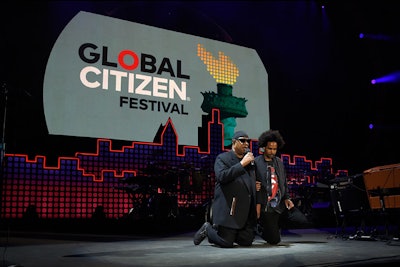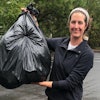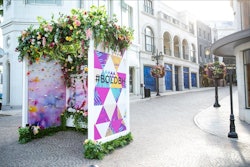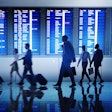
On Saturday, the Global Citizen Festival is slated to draw 60,000 people to the Great Lawn of New York’s Central Park to see musicians including Janet Jackson, Janelle Monaé, the Weeknd, Cardi B, John Legend, and Shawn Mendes perform. The annual festival, which is produced by Live Nation and is now in its seventh year, has positioned itself as a platform for which millions of people—named “Global Citizens” by the international advocacy organization of the same name—call on world leaders to meet the goal of achieving the U.N. Global Goals for Sustainable Development and ending extreme global poverty by 2030.
The specific goals for the 2018 Global Citizen Festival campaigns have included calling on Congress to resist the White House’s proposed cuts to American aid programs; calling on the G7 countries to contribute $2 billion to counter the world’s maternal health crisis; and ending the criminalization of poverty by reducing the use of cash bail in jurisdictions including New York. This year, the Global Citizen organization has secured 29 commitments from leaders that total more than $2.9 billion—which is expected to affect the lives of more than 501 million people by 2030.
The New York event, which notably is free to those who take certain social media and online actions through the festival app and website, has also expanded internationally, with recent satellite festivals taking place in Mumbai, India, and Hamburg, Germany. And on December 2, Global Citizen will culminate its “Mandela 100” campaign with a festival celebrating Nelson Mandela’s centennial, hosted by Trevor Noah and headlined by Beyoncé and Jay-Z at F.N.B. Stadium in Johannesburg, South Africa.
David Beame, the vice president of global events and experiences for Global Citizen, recently discussed the strategy behind bringing the festival to South Africa for the first time, along with how the festival plans to stay green in Central Park; how the festival will be broadcast on MSNBC and through live streams this year; and why the event scores some of the world’s biggest music acts as headliners.
Can you tell me a little bit about the strategy for organizing this year’s New York festival? Did you do anything differently than in years past?
There are a few new additions this year. We have always focused heavily on sustainability, but this year we’ve amplified that. We have a lot of new programs we’re focused on for our sustainability efforts. We’re working toward becoming a zero-waste event, which is extremely challenging, as most event planners know. Events aren’t the most sustainable. We’re taking this very seriously and making as many efforts and strides as we can toward making it zero-waste.
We’ll feature recycling and compost centers throughout the festival site that are staffed by GrowNYC to encourage attendees to minimize their landfill waste and to recycle the products that are created by the event. We’re selling reusable straws and offering incentives to attendees who collect a certain number of bottles and plastics onsite to redeem for free merchandise. We’re working with a local nonprofit called Sure We Can, which is a collection of homeless-friendly canners who we provide all of our bottles to at the end of the night. All of our proceeds that are redeemed from those go toward this nonprofit.
We’re working closely with [our media partner] MSNBC to provide free water throughout the site. They’re distributing tens of thousands of Vapur bottles. One thing that I’ve learned over the years is that the traditional plastic bottles that are handed out usually go into the cabinet in the kitchen and never see the light of day again. We found a really interesting collapsible bottle that, for New Yorkers, are easy to store.
The most exciting addition is that we have carbon offsetting. Vita Coco is offsetting the festival’s entire carbon footprint. We’re working with Code Red to determine the impact that we’ve had.
[PULLQUOTE]
What was the overall thinking behind these sustainability efforts?
To practice what we preach. This year we have a really big environmental focus and we really wanted to be a leader for a 60,000-person event to show how sustainability can be achieved. With every large-scale event there are limitations—certainly working on the Great Lawn in Central Park has its challenges. But we’re doing every effort that we can in order to reduce our environmental impact.
How do you go about booking high-profile performers and speakers for the festival each year?
We work closely with artists who are passionate about development and want to utilize their platform to campaign alongside us and to amplify our messages, in order to create the biggest impact and outcomes for the world’s poor. So we work closely with the artist teams, not only to focus on a large-scale, televised event and broadcast; we’re working with them on campaigns, and we’ve done that effectively throughout the years.
Over the years, this has generated commitments and policy announcements from business and government leaders, totaling over $37 billion. That is set to affect the lives of more than 2.25 billion people. So it seems to be working, and we’re really grateful to have the support of such amazing artists like Beyoncé, Rihanna, Pearl Jam, Coldplay, and many others.
This festival is heading to South Africa for the first time in honor of Nelson Mandela's 100th birthday. What was the inspiration for this new event?
We’ve always looked to keep the "global" in Global Citizen. We’ve taken this festival around the world. In 2016, we took the festival to India with Coldplay, Jay-Z, and some of the biggest Indian artists in the world. In 2017, we took the festival to Hamburg, Germany, around the G20 forum. This year, we’ve focused on Nelson Mandela, probably the greatest Global Citizen to ever live, and have worked with House of Mandela to bring this festival over to Johannesburg. The goal is to mobilize $1 billion in new commitments to the world’s poor, with at least 50 percent to better the lives of women and girls around the world. We’re fortunate again to have the support of Beyoncé and Jay-Z, along with our curator Chris Martin, who’s been amazing at bringing together not only phenomenal international artists, but also incredible, legendary African artists as well. That’s one of the balances we try to strike here, with finding talent that not only appeals to a global audience, but also represents Africa in the greatest way possible.
What are some of the challenges you face when planning these large-scale international festivals?
I think that when you go to any city throughout the world, you have to keep an eye on the fact that you’re becoming part of the cultural fabric of that city and of that country. We always look to work with the local production companies and teams as much as possible. We’re not looking to go into any country, bring our teams, and do everything the way we’ve always done it. We try to get that flavor from every country we go into as much as possible. And to respect their culture and practices as much as we can, while maintaining that balance of having a major event that isn’t normally done there, and a broadcast, which will be seen by millions of people outside that territory. We experienced this going into India, producing one of the largest shows the country has ever had.
When we go into South Africa, we are bringing our Global Citizen Skills Training Program, so that we can involve [young South Africans] who may not have had the opportunity to work on such large-scale events. We are working closely with all the partners there to do as much as they can to give back to the communities. That lends itself to our ticketing model, which is that the majority of our tickets are distributed for free by taking action. You have to earn your way into our shows. In New York, 80 percent of our tickets are distributed for free. In South Africa, we’re also working toward that. It encourages people to take action within their communities. We recently had a cleanup in Johannesburg, where people who came out were registered to win tickets to the show. We’re always looking to not only activate people to create activism on a local level, but also on a global level.
After Johannesburg, will the festival travel to any new cities soon?
That is a good question. We’ll always look to expand our footprint around the world. We have a few ideas for next year and for the years to come. We always intend to use New York as the tentpole event, but we will indeed be going internationally for many years to come. The one thing that works out well for us are our broadcasts. Because we’re a global variety program with the biggest artists, celebrities, and world leaders, we’re able to reach an audience around the world every time we have a show, no matter where we are.
Speaking of the broadcasts, is the festival adding any new elements to the television presentation or live stream this year?
We’re always looking to improve. We want our broadcasts to be as ubiquitous as possible. We want our message to be as broad and far-reaching as possible. The full, seven-hour program—with a one-hour pre-show—will be on MSNBC live as it has in the past. In addition, our digital live stream will reach millions of people through our partnership with YouTube and Twitter. The live streams are sponsored this year by our major partner Johnson & Johnson. We’ll have that along with V.O.D., which will live on both the YouTube Global Citizen channel and on Twitter. We focus very heavily on our broadcasts, both television and live streams, because we can reach so many people. We do feel that afterward, and we utilize that in order to get people to sign up to become Global Citizens and to get people to take action.
What new developments can people expect from future festival editions?
At the end of the day, we’re building a festival. We’re building everything around a single microphone, so that leaders can come up on stage and announce major commitments for the world’s poor. That’s always at the forefront of our thinking: How can we make a really compelling story, so that people become passionate about using their voice to help end extreme poverty? It’s always amazing to have artists on stage who are putting everything they can into their performances. We’re always looking to improve how to make the real rock stars shine, and those are the corporate leaders and the world leaders who will make commitments and step up to improve the lives of the world’s poor. We’re looking to create compelling moments that will touch and inspire people, and to take action. In the future, we want to enhance our shows and build upon what we’ve already created. Certainly when you’re taking on the challenge of ending extreme poverty by 2030, you take on more and more challenges for the types of shows and productions that you create. We’re excited to continue to develop and grow our live show and broadcast.
This interview has been edited and condensed.



















